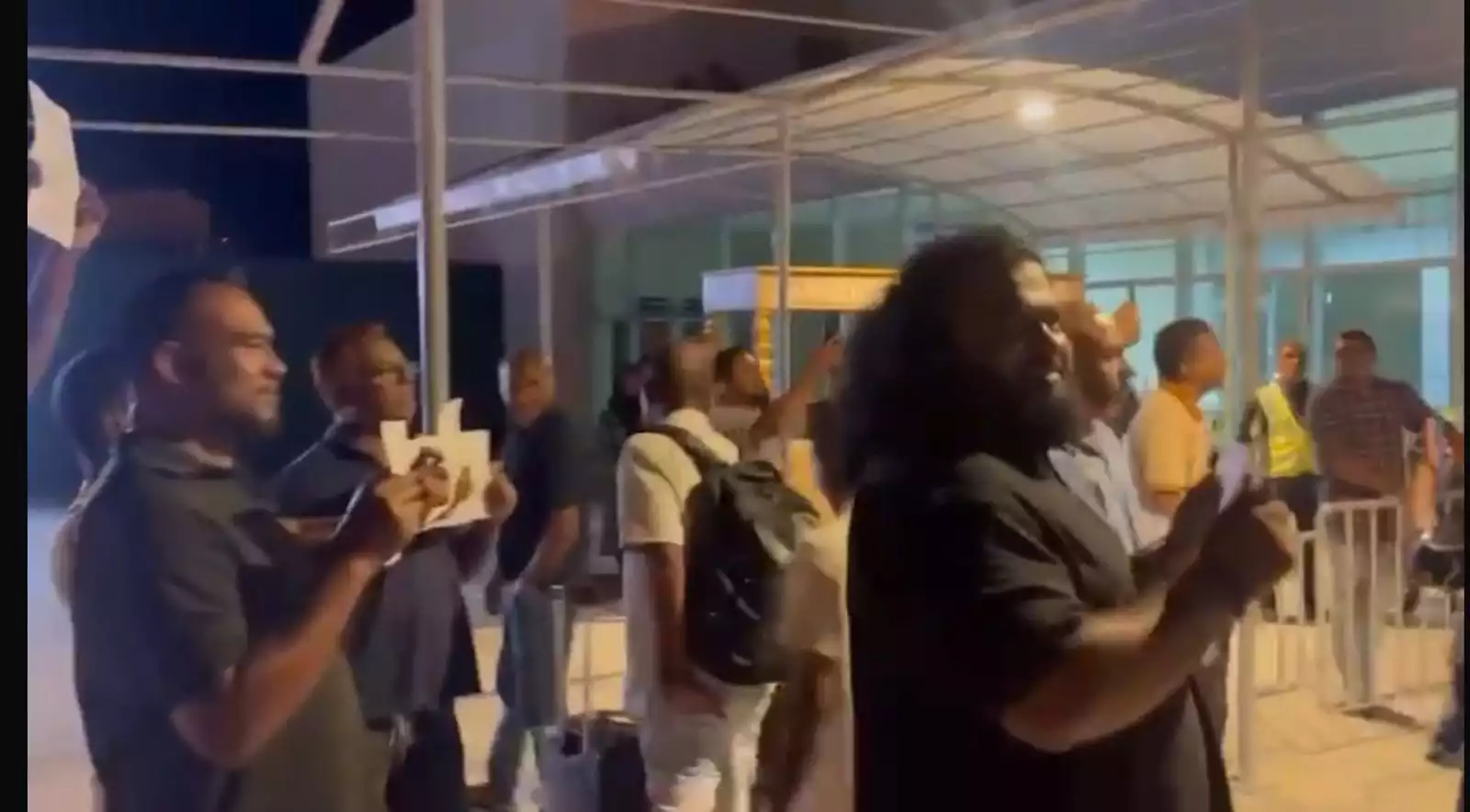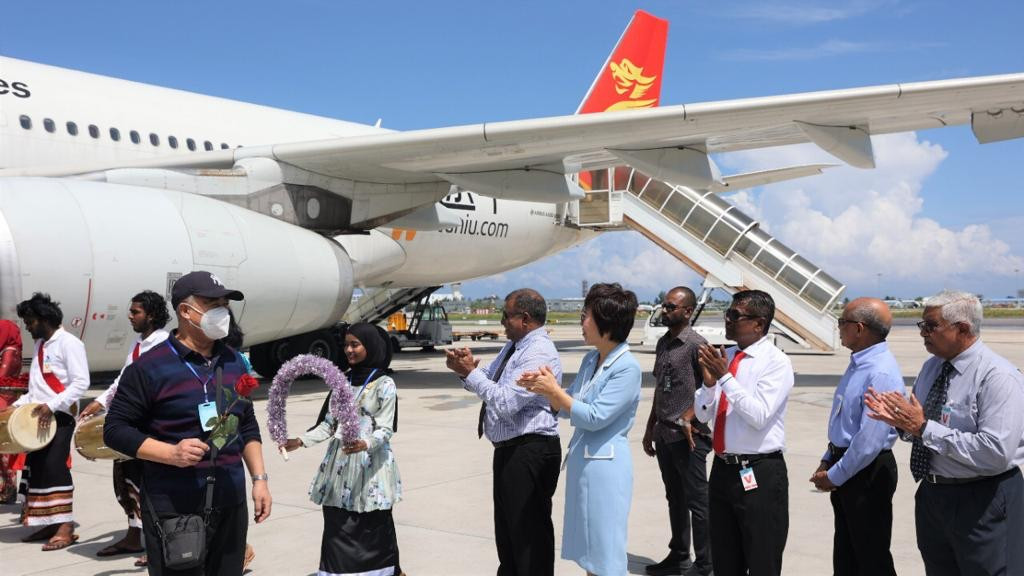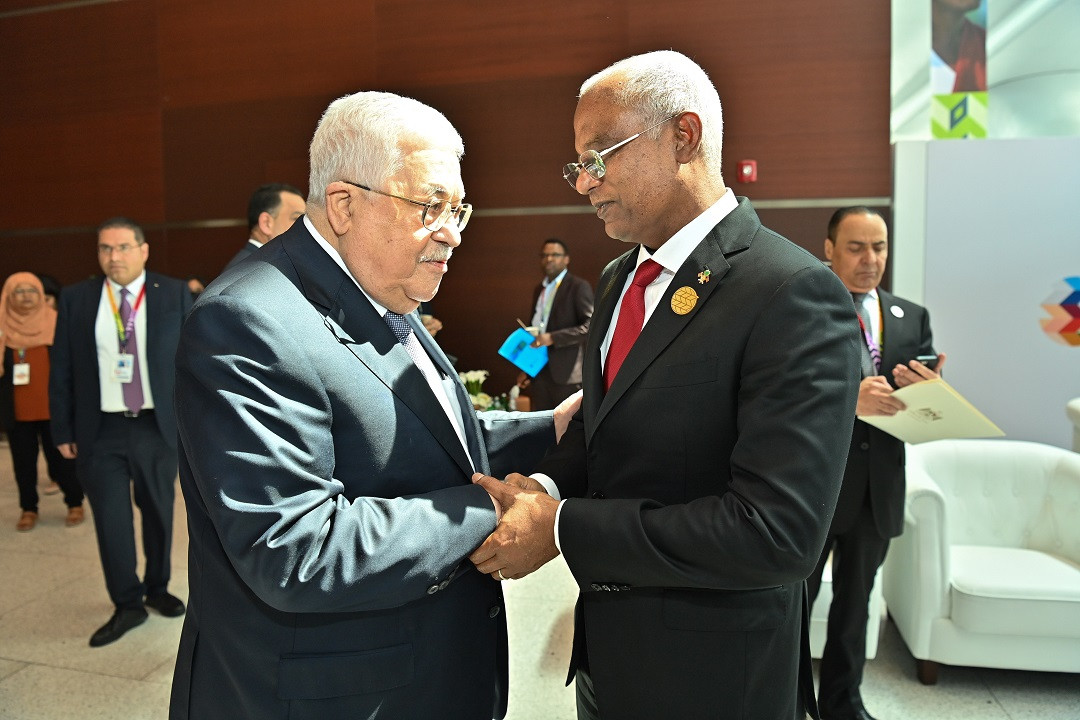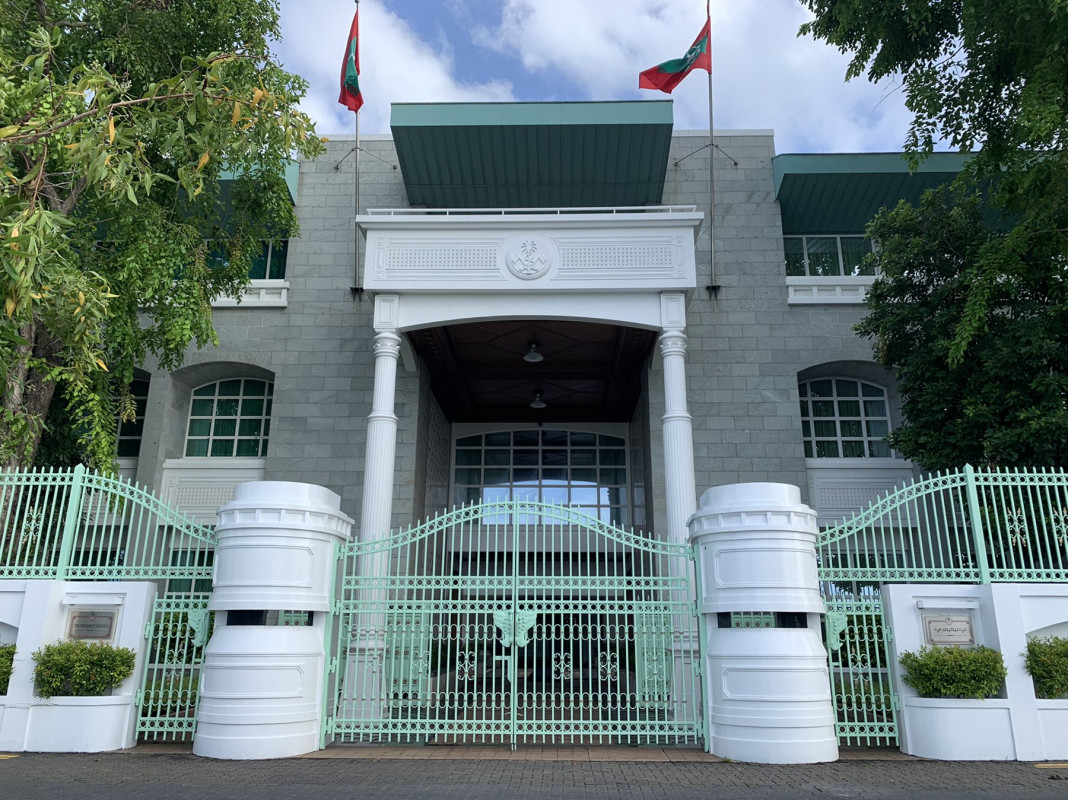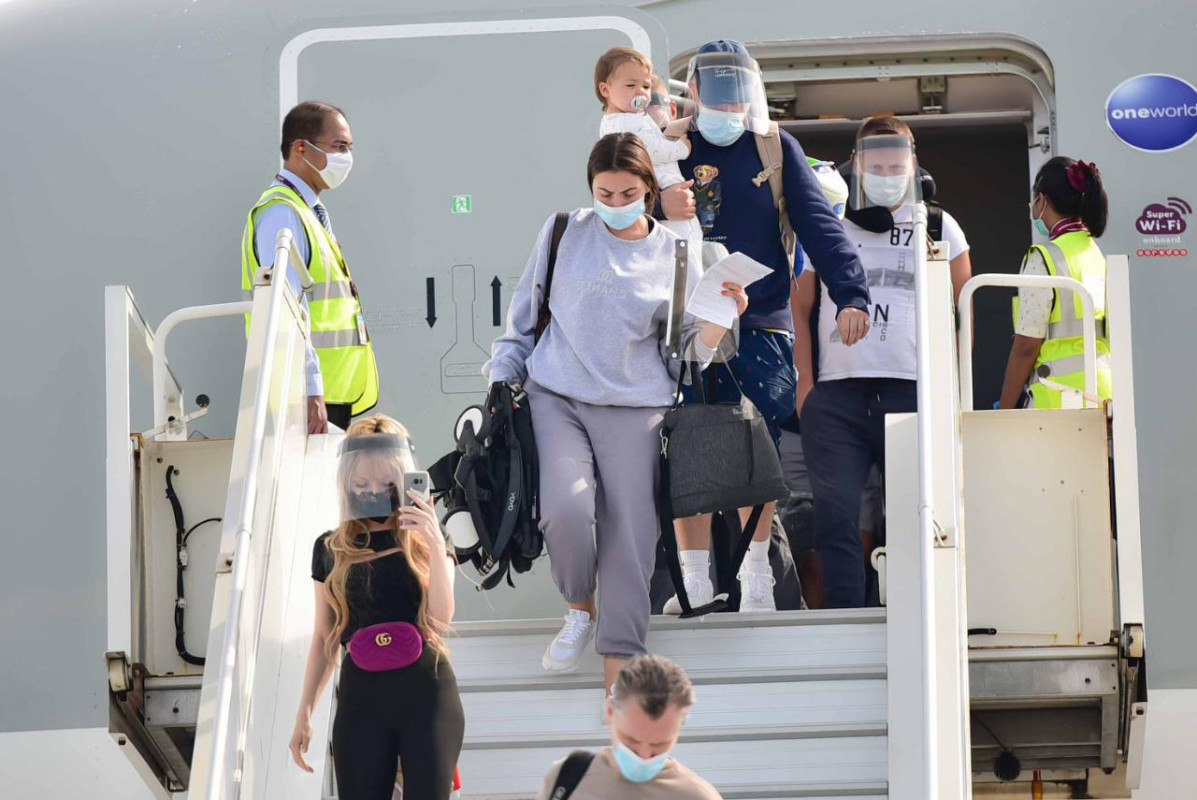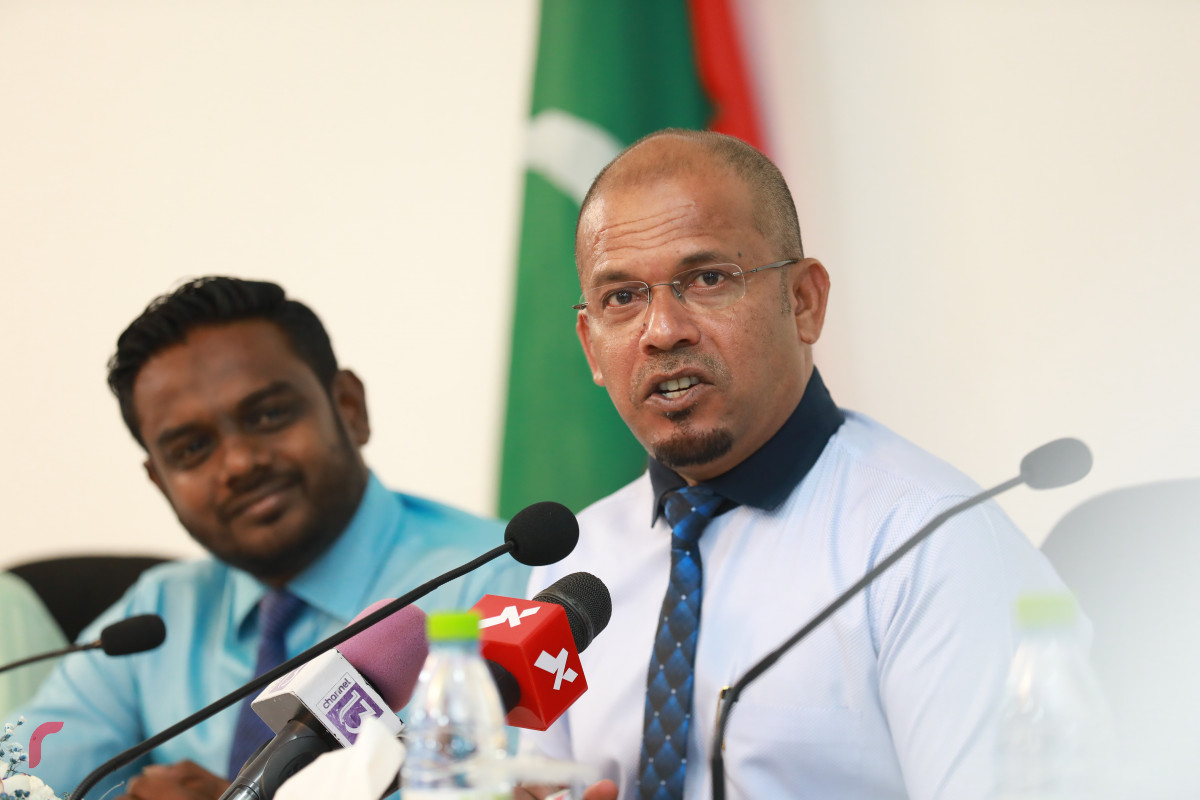Maldives in Crisis: is paradise still safe?
The Maldives is guaranteed to be heart-enchantingly beautiful, but its promise of tranquility and serenity is not
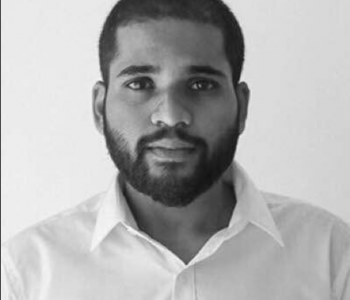

The Thudufushi Resort in Alif Dhaal Atoll
Maldives is a holiday paradise, there is no argument. Its idyllic underwater scenery and beaches with powder-soft sand are unforgettable and what tourists spend millions every year trying to get a piece of. Though we have natural beauty that few other nations can compete with, if observant enough; those that stay at any of Maldives’ island resorts will notice that the architecture and design pave way for something else, something priceless at this near-divine tropical setting: peace.
The nation’s beauty remains but its promise of tranquility and serenity, which was intact years ago in its full, have taken enough strikes to deter the most avid gallivanter. There have been many reasons for this over the last decade: money laundering, sex trafficking, state-backed human rights violations, heavy political conflict, and allegations of corruption widespread within state institutions – all issues that have made international headlines.
In the one-and-half months of this year alone, Maldives’ international reputation has taken a beating likely to leave a scar or few. In January, the government ordered police officers and custom officials to raid a total of four island resorts operated by a well-known business tycoon, whose ventures in the tourism industry have received multiple awards in the decades they have been in business.
Tourism has nearly always been restricted to island resorts, and guests are respectfully kept at a distance from where locals live. The raids on these resorts, over allegations of unlawfully possessing and distributing liquor, broke this precedent. Employees at one of the resorts, Paradise Island, have gone on record with local newspapers to say that police had acted unnecessarily intrusive and disruptive during their raids.
While authorities have denied strictly ‘upsetting’ any individuals during these raids, which then not only continued for days but led to officers being stationed there, it is unlikely they left the island having conducted a poll or taken vote to comprehend the consensus on the ramifications of whether or not any tourists who thought they were out for an evening of relaxation, entertainment, and peace, that night before they went in, were ‘upset’.
Villa Group released multiple statements condemning the action and its employees protested, calling it a political move aimed at attacking the livelihood of an opposition leader, the Villa Group’s founder being opposition leader Qasim Ibrahim, a man highly reputed in business with an unquenchable keenness towards politics. Other operators in the tourism industry and high-profile members of the business community had denounced the act as ‘low’ and ‘careless’.
While the validity of the legal grounds on which the raids were conducted is still in debate among political critics, journalists, and the general public, the government made another decision that only added fuel to an already raging fire. President Abdulla Yameen, having delayed a court ruling that releases prisoners that were proven to be incarcerated unlawfully, announced a state of emergency in the country. The constitution gives him this right, but after having published the declaration in the government gazette within three days of imposition and receiving parliamentary approval. Procedures, of which none were followed.
The government’s delay in enforcing the Supreme Court ruling have led to nightly protests in the capital city, which officers in riot gear routinely use excessive force, pepper-spray, and teargas indiscriminately, against journalists and even pedestrians, while trying to disperse the crowd. The cat is out of the proverbial bag, Malé City is not safe. Multiple nations told their citizens so.
While some asked them to exercise excessive precaution and to stay clear of protests, others advised their citizens to not visit the country entirely, and to cancel any bookings if they have been made. Tourists are free to travel without any restrictions on movement within the capital city, but parts of it are closed off every night and cordoned off at whim by the police. Getting caught up in the disarray of protests and the hazard of tactics used to disband them is also easy in tightly-populated Malé City.
Countries that released a travel advisory over the state of emergency within just days (in bold are nations common on both lists):
- China
- Germany
- United Kingdom
- Italy
- India
- Russia
- France
- Japan
- United States
- Singapore
- Australia
- Canada
- Saudi Arabia
Nations from which Maldives gets most of its tourist arrivals are listed below (in bold are nations common on both lists):
- China (306,530 arrivals last year)
- Germany (112,109 arrivals last year)
- United Kingdom (103,977 arrivals last year)
- Italy (88,848 arrivals last year)
- India (83,019 arrivals last year)
- Russia (61,931 arrivals last year)
- France (42,365 arrivals last year)
- Japan (41,133 arrivals last year)
- United States (39,180 arrivals last year)
- South Korea (34,808 arrivals last year)
The government imposed a thirty-day state of emergency three years ago in November, 2015. Statistics available on the Tourism Ministry’s website shows only a slight drop arrivals, negligible from some countries non-existent from some. Though then, peace at island resorts had never been shattered and the enjoyment of tourists were considered sacred, even if the capital city were to be torched and razed. With more tarnishing of reputations and what Qasim Ibrahim’s Villa Group went through, this is clearly no longer the case.
WATCH: Has the state of emergency affected guesthouse businesses in Maafushi island?
The government has always had an affinity towards the narrative that the opposition’s call to visitors to refrain from travelling to the Maldives, always specifically those operated by known backers of the government, over human rights violations against activists and those that have been allegedly detained unlawfully. But nothing in the industry's history has had a more tangible impact on tourism than the government's recent political moves.
The government has clearly caught wind of this, as they have begun fighting off international condemnation. The President’s Office sent envoys to three nations this week, and institutions like the police have uncharacteristically begun releasing translations of their statements. Understandably so, the tourism industry accounts for a mammoth chunk of Maldives’ income, and income to specifically to the state from taxes. Even the Moody’s Corporation called the imposition of a state of emergency in the Maldives, ‘credit-negative’.
While the military and police’s continued arrests of prominent opposition members and harsh thwarting of protesters voicing their concern over the potential unlawfulness of the state of emergency itself, discourages anyone trying to get away for holiday here, the opposition’s call for foreign intervention – on the moral grounds of not escalating revolt and shedding blood perhaps – definitely does not help as far as tourist arrivals go. Whether we will recover remains to be seen, but the picture is clear. The Maldives has lost the trust of a lot of people. Our reputation is tarnished, and this crumbled paper does not seem like it may be perfect again.
